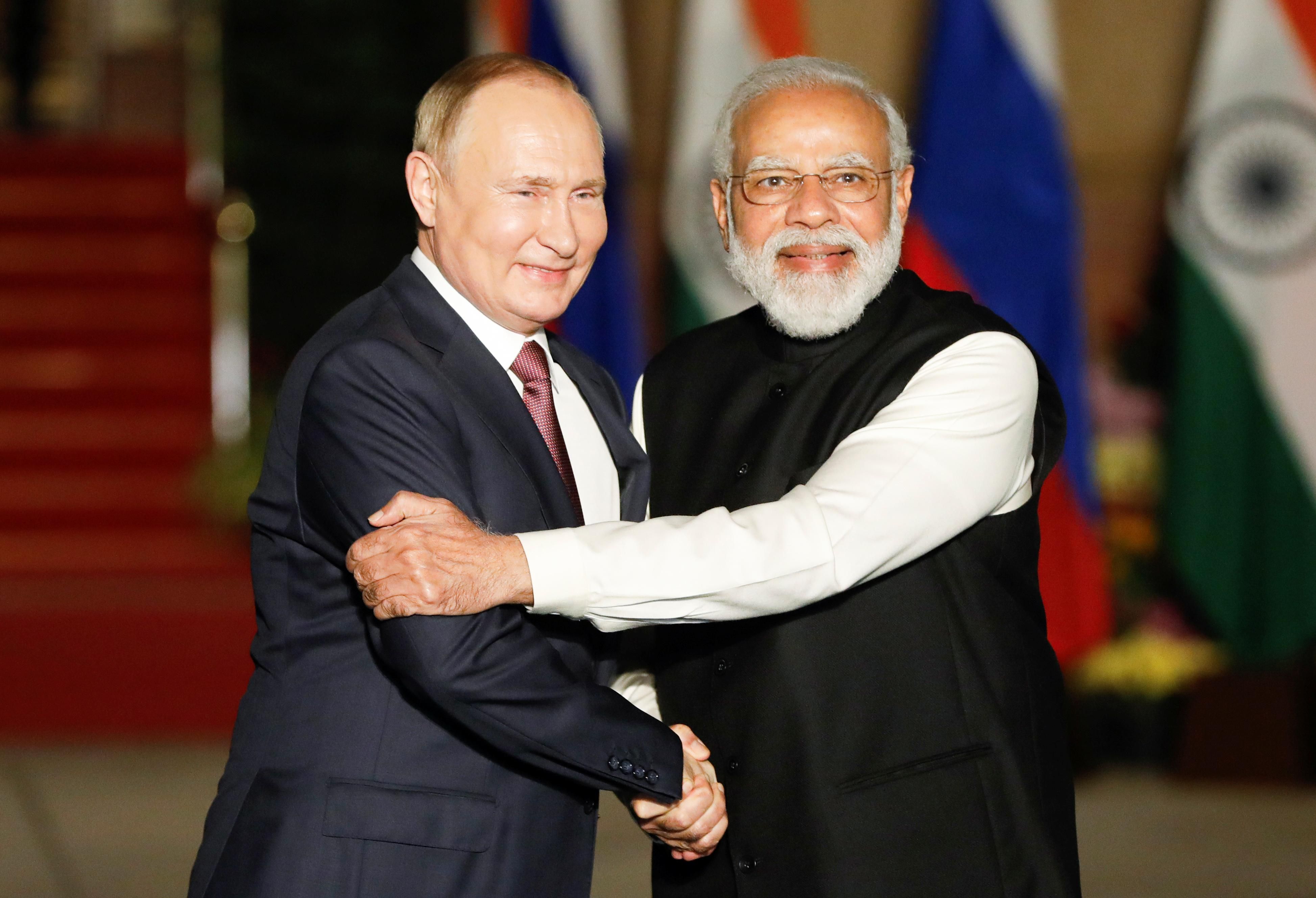India’s fence-sitting on Ukraine hurts its chances of becoming global leader
It’s good to know who your friends are, especially when one global power tests the world’s resolve. In recent days, many countries have aligned against the Russian invasion of Ukraine — even Switzerland, with its 500-year-old neutrality, is said to be close to joining the EU in sanctioning Russia.
Yet, despite pressure from the US and appeals from Ukraine, India, the world’s largest democracy, has decided not to condemn Russia’s invasion or back sanctions. Delhi has appealed for a cessation of hostilities, but it abstained from voting Friday on a UN Security Council resolution condemning Russia’s invasion. While Delhi’s hedging got a terse response from Washington, the abstention earned India thanks from Moscow. But why is India, a partner of the West, the only major power not standing firm against Russian aggression?
The answer lies in Prime Minister Narendra Modi’s current security priorities as well as his country’s long history of non-alignment. Ukraine puts India in a tough position of choosing between a “rules-based” international order with its new democratic partners, or toward its older policy of “strategic autonomy.” In defense terms, India is also between a rock and a hard place — as it’s heavily reliant upon Russian weapons to survive in its own rough and changing neighborhood. For now, Delhi is playing both sides, and it seems to be working.
“There’s a greater degree of understanding in Washington of India’s predicament than in the past,” says Dhruva Jaishankar, executive director of the Observer Research Foundation America. “I doubt anyone will want to completely sever relations with India — even defense relations — over India's position here.”
Still, playing the fence is always a gamble. “India is continuing to walk a tightrope with a serious risk of falling off — its silence has been taken as support by the Russian government, and the Biden administration is not happy,” says Manjari Chatterjee Miller, a senior fellow at the Council on Foreign Relations.
Since independence in 1947, India has fought one war with China, three with Pakistan, and engaged in countless skirmishes with both. It has troops engaged in a face-off in the Himalayas against the People’s Liberation Army and has heavy forces constantly deployed along the heavily militarized border with Pakistan.
Now, China and Russia are tightening their bond, and the Russians are in exploratory strategic talks with Pakistan. In fact, on the day Russian forces invaded Ukraine, Pakistan’s Prime Minister Imran Khan was at the Kremlin in a three-hour meeting with Vladimir Putin. India is warily watching these changing dynamics.
Since the 1950s, India has counted on Russian weapons to defend itself, and for the past 12 years, Russia has been the source of nearly two-thirds of all Indian arms imports. India has been the world’s largest importer of Russian weapons, accounting for one-third of total Russian arms exports. Russia is the world’s second-largest arms exporter (the U.S. is no. 1), and India is its biggest and most loyal customer. Ditching Moscow would mean cutting off India’s vital military supply chain at a time when the Kremlin is moving closer to Delhi’s rivals.
There’s diplomatic history here, too. The two countries have backed each other for decades during their conflicts. Moscow has exercised its veto at the UN in favor of India four times since the 1950s. In 2014, as Russia annexed Crimea, India sided with Russia, calling it an internal issue and opposing sanctions against Moscow.
But since then, Delhi has moved closer to the West. Today, it is a standing member of the strategic security partnership known as the Quad, which also includes Australia, the United States, and Japan. Washington and Delhi cooperate on counterterrorism efforts, intelligence, and more. In short, India is a “major defense partner” to America, which makes for a sticky situation when it comes to Ukraine. Delhi can stick with its old, dependable Cold War-era weapons dealer cum ally — it is notably exploring ways to work with Moscow to lessen the impact of sanctions — or join its new friends against the Kremlin.
The US State Department says it is “okay” with India’s “distinct” relationship with Russia. It has even asked Modi to exercise his leverage with Putin. After all, India is uniquely positioned. It could use its decades of proximity to and leverage with Moscow to intervene diplomatically.
But Delhi’s balancing act is tricky, and there is the risk of it backfiring. Chatterjee Miller believes Delhi should do something now to help de-escalate the situation.
“The time to seize the initiative was prior to the invasion,” she says. But the smart move for Delhi now would be “saving its credibility as a strategic partner to the US and the Quad.”
